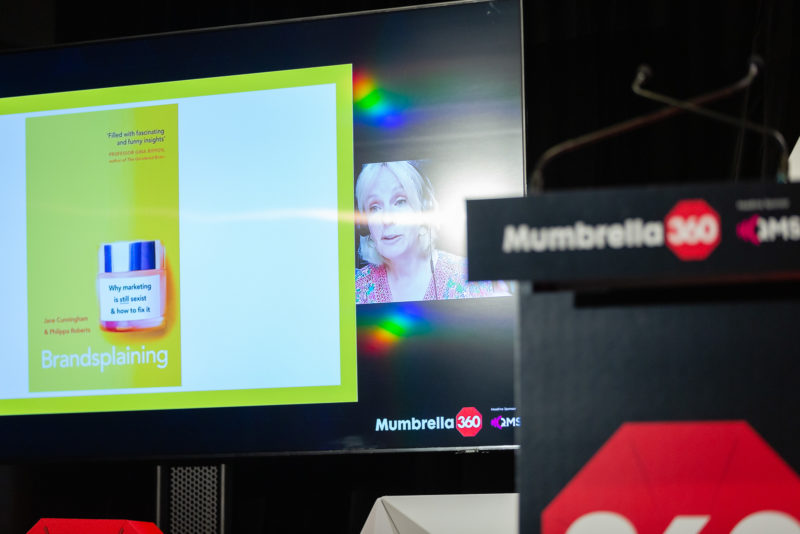‘Progress over perfection’: leading industry women on gender biases in the marketing industry
“I love the saying progress over perfection and you have to start somewhere. Sometimes business is harder to move, and if you waited for that moment that everything was perfect with a big bow on it, five years pass you by and really no change has been made,” said Nikki Warburton, former CMO of Audi Australia on a panel discussion at Mumbrella360 on Wednesday.
The panel followed a presentation from Phillipa Roberts, co-founder of PLH Research and co-author of ‘Brandsplaining’, who joined the session virtually to unpack data-led analysis of the good, the bad and the downright ugly of marketing to women.

Philippa Roberts joined the first part of the session virtually

